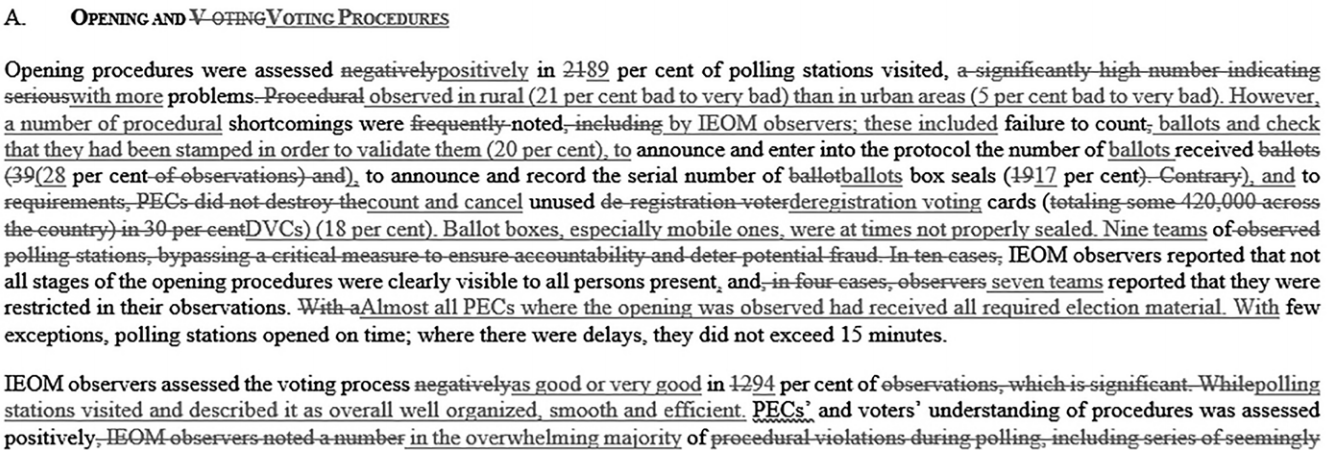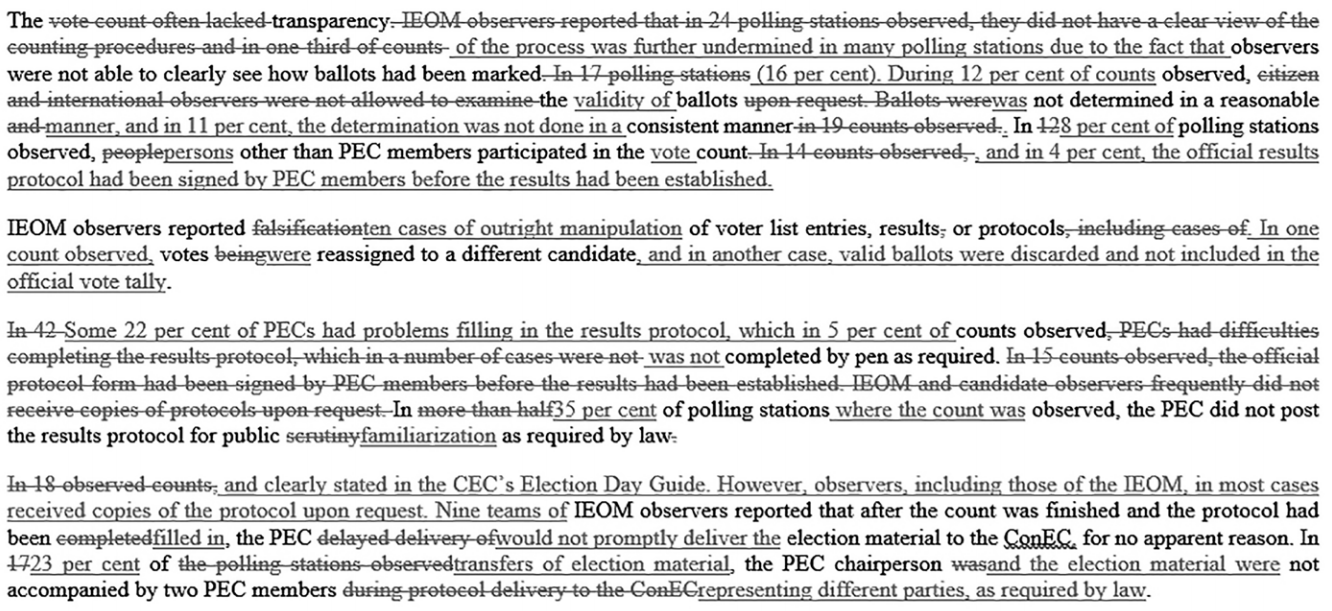As a whole, the election observation is a very efficient tool for mobilizing the civil society and for various forces to destabilize political regimes. In this regard, the OSCE/ODIHR, being an institution that carries out an election observation mission, is a tool to keep the regime change in the hands of the West and under its effective control. Therefore, it is not wrong to associate the election observation of the OSCE/ODIHR with political unrest.
The 8 November 2010 statement on the preliminary findings and conclusions made by the OSCE/ODIHR, the OSCE PA, PACE and the European Parliament, reads as follows: “While the 7 November parliamentary elections in the Republic of Azerbaijan were characterized by a peaceful atmosphere and with participation of all opposition parties in the political process, the conduct of these elections overall was insufficient to constitute meaningful progress in the democratic development of the country”.
After three years, the statement of the OSCE/ODIHR on the 2013 election read as follows: “The election was undermined by the limitations on the freedoms of expression, assembly and association that did not guarantee a level playing field for candidates. Candidate and voter intimidation and a restrictive media environment marred the campaign. Significant problems were observed throughout all stages of Election Day processes and underscored the serious nature of the shortcomings that need to be addressed in order for Azerbaijan to fully meet its OSCE commitments for genuine and democratic elections.”
In general, non-objective assessment of the elections in Azerbaijan by the OSCE/ODIHR has become regular after the country gained independence. Particularly, while PACE, the European Parliament and the OSCE PA positively assessed the outcome of the 2013 presidential elections, the assessment of the OSCE/ ODIHR mission was non-objective and biased. In 2015, the OSCE/ODIHR refused to observe the parliamentary elections under various pretexts and tried unsuccessfully to delegitimize the parliamentary elections through predetermined acts of sabotage. What concerns us most is that the organization, designed to be impartial in the fulfilment of its duties, has manipulated the reality regarding the elections in Azerbaijan over the last 10 years under scrutiny to fill pages of its pro-Western and anti Azerbaijani documents.
Actually; the reports of the OSCE/ODIHR regarding the2008, 2013,and 2018 presidential elections and the2010 parliamentary elections as well as the report of the Needs Assessment Mission published prior to the 2015 parliamentary elections consisted of the same copied and pasted sentences, words and phrases.
For example, in the following examples, sentences, phrases, or words in black letters have repeatedly been replayed in the final reports of the OSCE/ODIHR during various election years. It cannot be coincidence that reports of different election observation missions to contain the same words said in 2008, 2013 and 2015 years. Only figures were changed in the texts, however, the messages which are of political nature and directed at undermining the stability in Azerbaijan remained unchanged. The OSCE/ODIHR should give an explanation on this, since its credibility as an impartial election observer with such a practice falls to very low level.






It is known that in 2008, 2013, and 2015, heads of the OSCE/ODIHR EOM and composition of the missions had been different. Here emerges a question: How is it possible that different competences, different members in different years repeat the same sentences in the final reports? Is anyone responsible for the “manipulation” of the OSCE/ODIHR mission reports behind the scenes? Actually, the author of this report resolutely considers that the preliminary reports prepared by the OSCE/ODIHR observers are, consequently, manipulated in accordance with the political agenda predetermined in order to serve the national interests of the Western countries through the network of NGOs.
